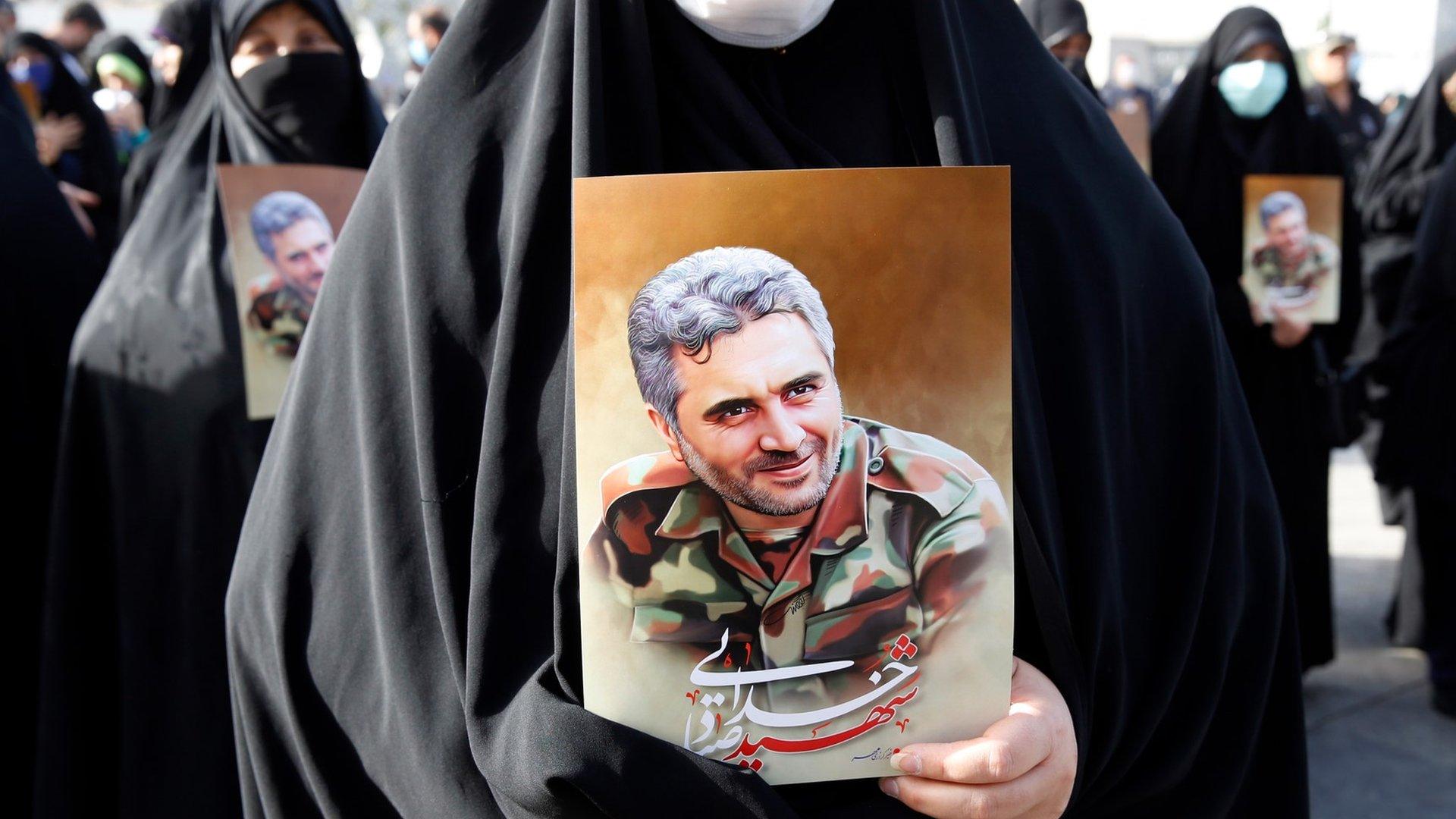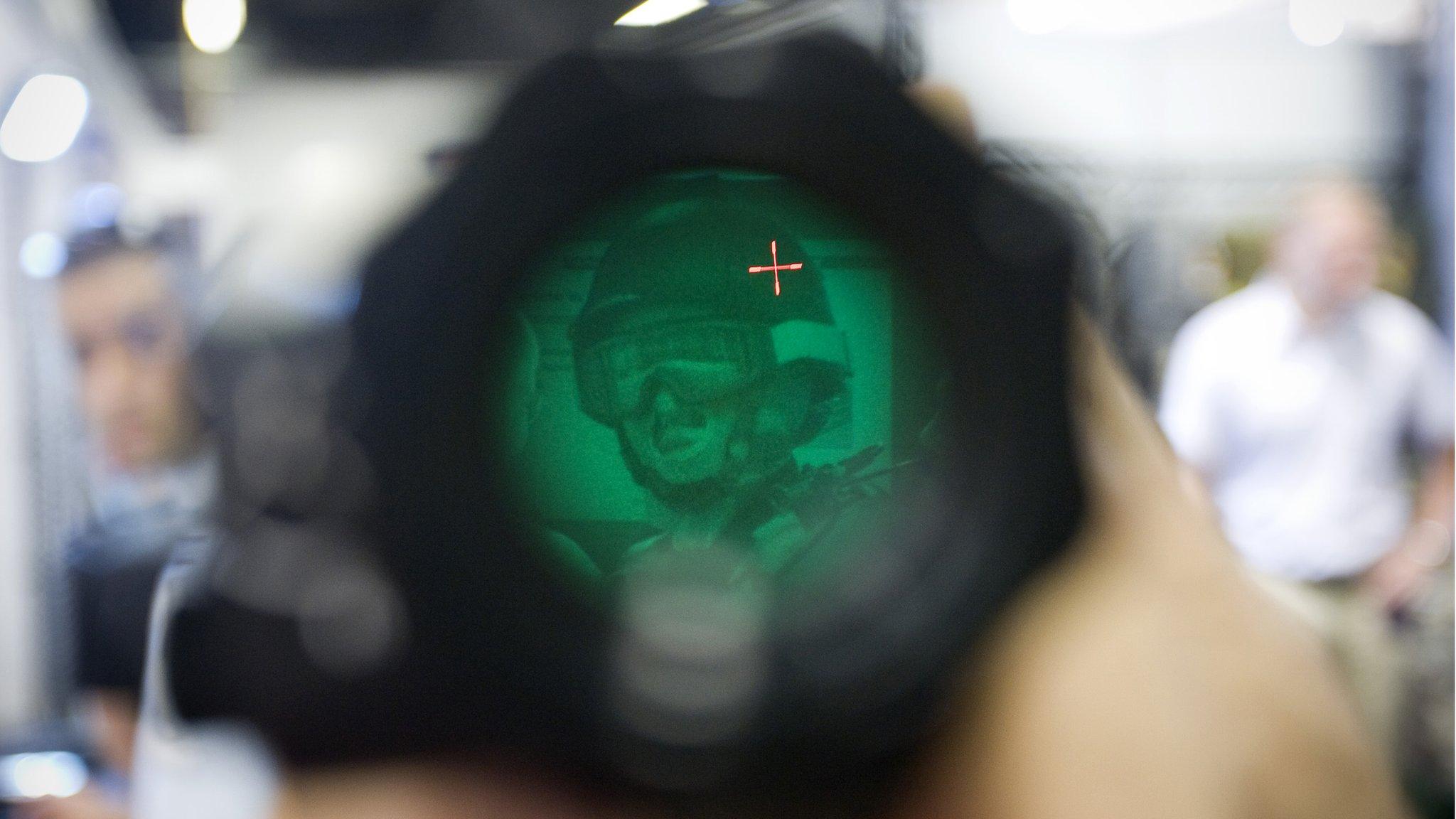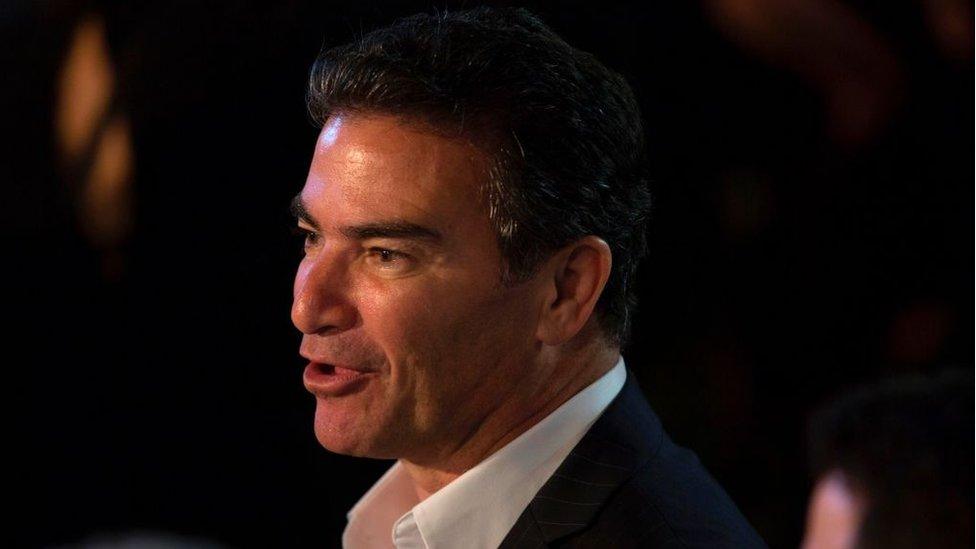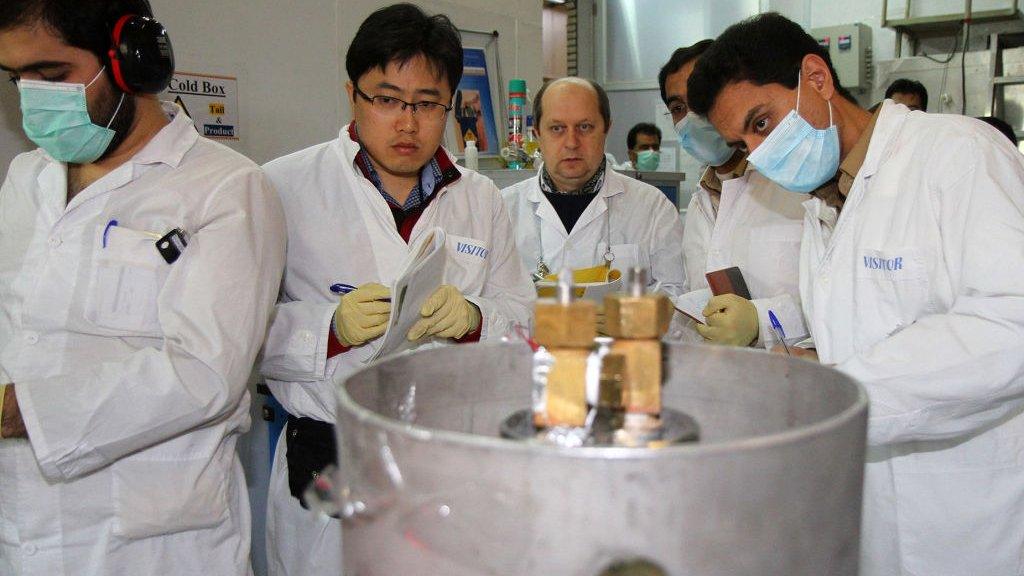Israel's Mossad says it abducted hitman from inside Iran
- Published

The video showed a man apparently confessing to the planned attack in Cyprus
Israel's spy agency says it carried out an operation in Iran to capture the suspected head of a hit squad that planned to kill Israelis in Cyprus.
Mossad, which rarely speaks to the media, said the man gave a detailed "confession" about his orders from the Iranian Revolutionary Guard Corps.
It said it informed authorities in Cyprus, where the cell was dismantled.
The case is the latest reminder of the continuing shadow war between Israel and Iran, which are long-time enemies.
An Israeli expert told the BBC that the unusual openness of Israeli intelligence could have been prompted by reports that the US has quietly restarted indirect talks with Iran to contain its nuclear programme.
"Israel's interest here in publicising this is to show the world that you might be making a deal with Iran on its nuclear programme, but Iran is a far greater challenge," comments Yaakov Katz, journalist and author of Israel Vs Iran: The Shadow War.
"It tries to assassinate businessmen in places like Europe; it does a lot more than just enrich uranium."
Israel's claims about the Cyprus plot could not be independently verified, and there have been no immediate comments in response from Tehran or Nicosia.
In a statement, Mossad describes carrying out "a unique daring mission within Iranian territory". It quotes a senior Mossad official as saying: "We will get to every official who advances terror against Jews and Israelis anywhere in the world, including within Iranian territory."
A video released by Israeli authorities purports to show a man identified as Yousef Shahabazi Abbasalilu, the main suspect in the case, speaking in Persian to a Mossad agent outside Iran.
He describes entering Turkish-controlled Northern Cyprus and crossing illegally to the south of the island to kill an unnamed Israeli businessman. He says he had been sent the man's photograph and address by his handler in the IRGC, a powerful paramilitary force.
"My plan was… after I found out he was there and where he was going, if it was a quiet and empty road, I would kill him with the weapon," the man says.
After scoping out his target and taking pictures of his home, the alleged hitman apparently fled from Cyprus and headed back to Iran, because he was alerted that police were looking for him.
It is not clear from the footage if the man is speaking under duress.
Mossad has not given details of when or where the capture happened, nor when the attack in Cyprus was due to take place.
For decades, Israel has viewed Iran as its greatest adversary, citing calls by the Iranian government for its destruction and Tehran's backing of militant groups which carry out attacks against it.
Along with the US and Europe, it suspects Iran of seeking to develop nuclear weapons. Iran maintains its nuclear ambitions are peaceful.
In recent years, Israel is reported to have carried out a series of attacks on Iranian nuclear facilities and is accused of killing a number of Iranian nuclear scientists.
In 2018, Israel announced that in one of its most brazen missions, Mossad agents had broken into a warehouse in Tehran to steal a large collection of files about Iran's nuclear programme.
Last year saw warnings of an Iranian threat to Israelis in Turkey and tourists were told to leave the country immediately. Turkish forces were later said to have detained men with guns, silencers and ammunition.
There were also media reports that Israel's intelligence service had picked up and interrogated two IRGC officials inside Iran. One was alleged to have been involved in efforts to assassinate an Israeli diplomat in Turkey, a US general based in Germany and a journalist in France. An unverified audio recording of him speaking was released.
Yaakov Katz believes that by revealing details of that case and the latest one, in which Mossad comments directly, the main intention appears to be to remind Israel's international allies of "the bigger threat that Iran poses to the Western world". However, it could also serve the purposes of deterrence.
"The Iranians know that the Israelis have done a very successful job at penetrating the inner workings of their intelligence agencies and security establishment," Mr Katz says. "But when this goes public, it's a big embarrassment to the Iranians and it shows the strength of the Israeli intelligence agency."
- Published25 June 2022

- Published6 February 2022

- Published11 June 2021

- Published13 April 2021
